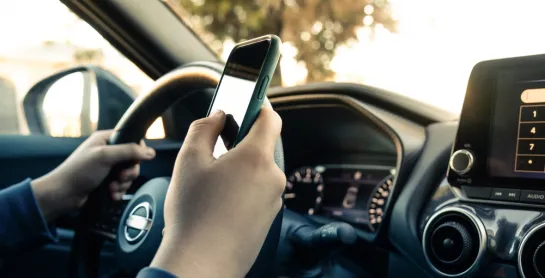How to Talk to Teens About Texting and Driving: A Parent’s Guide

Injured?
Be their hero behind the wheel. Hear John Morgan’s powerful message on safe driving—click here to watch.
As parents, we know that one of our biggest jobs is to keep our kids safe, especially when they get behind the wheel for the first time. But let's face it—talking to teens about anything can feel like a challenge. Toss in a serious subject like texting and driving, and you might find yourself on the receiving end of an eye-roll.
But here’s the thing: texting and driving is a real danger, especially for young drivers. In fact, teens are among the most at risk, with distracted driving accounting for nearly 9% of fatal crashes involving drivers aged 15-20, according to the National Highway Traffic Safety Administration (NHTSA). So, how do you communicate the gravity of the situation without sounding like a broken record? Let’s break it down.
Start With the Stats (Yes, Even Teens Care About Facts)
While teens may seem like they’re living in their own world, they still respond to facts—especially when they’re presented in a way that’s real and relatable. Did you know that texting while driving makes you 23 times more likely to crash? Or that taking your eyes off the road for just 5 seconds at 55 mph is like driving the length of a football field blindfolded? Drop these stats on your teen, and they might just take a pause.
Lead by Example (Yes, They’re Watching)
As much as teens love to rebel, they also pay close attention to your behavior—whether they admit it or not. Remember, while growing up, you were their hero and role model. If they see you texting at a red light or checking notifications while driving, they’ll be more likely to do it themselves. So, as difficult as it might be, put your phone away when you're behind the wheel. Even better, call it out when you’re setting the example: “See, even I’m tempted to check this text, but it can wait until we get there.”
Share Real-Life Stories
Teens may feel invincible, but hearing real stories about the consequences of texting and driving can help make the risk feel more immediate. Share stories of accidents caused by texting that have happened in your community or even stories from news headlines. If you know someone personally affected, explain how it impacted their lives.
To soften the tone, add: “You know how I’m always bugging you about staying safe? Well, here’s why—because I don’t want your story to end up like this.”
Use Apps to Keep Them Safe
One of the best ways to reach teens is to speak their language—technology. There are plenty of apps designed to prevent texting while driving, and many of them can be set up to send automatic replies when someone texts or calls. Apps like DriveSafe.ly or LifeSaver are designed specifically for young drivers, helping them focus on the road without being tempted by their phones.
Appeal to Their Independence
One of the best motivators for teens? Their desire for independence and control. Instead of simply telling them not to text and drive, frame the conversation as a matter of personal responsibility. Explain that by putting their phone away, they’re not just following rules—they’re taking control of their safety and the safety of others on the road.
You can throw in a little reverse psychology: “I know you’re perfectly capable of handling this. I’m just making sure you’re as safe and smart as I know you are.”
Don’t Forget the Consequences
As fun and lighthearted as this conversation can be, it’s important to emphasize the real-life consequences of texting and driving. Along with the obvious risks to safety, texting while driving can lead to hefty fines, higher insurance premiums, and even the loss of driving privileges.
When talking consequences, get real: “I know it sounds dramatic, but one bad decision could change everything—your safety, your freedom, and your future. Is a text really worth that?”
Be Their Hero
Remember, in your teen’s eyes, you’re still their hero—even if they don’t always show it. By leading by example, sharing stories, and empowering them to take control of their safety, you’re doing more than just keeping them from texting and driving. You’re showing them that they’re capable of making smart choices that can protect their future.
At Morgan & Morgan, we know the devastating impact that distracted driving can have on families. If your family has been affected by a texting-and-driving accident, we’re here to help. You focus on keeping your family safe, and we’ll focus on getting you the justice you deserve. You can contact us anytime for a free case evaluation.

We've got your back
Injured?
Not sure what to do next?
We'll guide you through everything you need to know.
